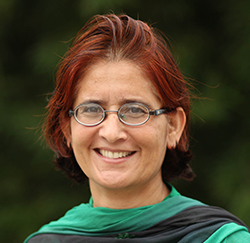Columns
Never-ending road to justice
Due to the prevailing impunity, and in the absence of political will, the process has been derailed systematically.
Susan Risal
Nepal marked 14 years of the Comprehensive Peace Accord on November 21, 2020. One of the major components of the peace process is the need for a logical end to the transitional justice process. However, in the absence of political will and prevailing impunity, the process was derailed systematically. It is imperative to create a system that protects the people who have suffered the most from the gross human rights violations at the time of the Maoist conflict, especially the women who faced sexual violence throughout the period of the peace process. However, Nepal has failed to protect these individuals in terms of many aspects: legal, physical, psychological, economic and socio-cultural, whereas women deserve the quality of life to live in every aspect.
Sadly, it is important to note that the individuals who currently occupy positions of power in the country previously played significant roles, and were the main actors, in the decade-long armed conflict. Today, we see a sense of denialism in these individuals when it comes to cases of sexual violence. They are trying to silence the cases of sexual violence, and erase them from the official and national memory of the country. This has had negative consequences on the well-being and self-growth of the women who have survived sexual violence. But it is important for the state to include these issues in the national narrative. In addition, it is equally important to educate future generations about the brutal experiences and suffering of women at the time of the conflict, so that they do not repeat the same mistakes that occurred in the name of system change, and so that they can develop the notion of never again.
Search for truth
Many women who survived sexual violence during the conflict continue to search for truth today. They want the injustice that was done to them to be acknowledged by their families, communities and the state structures. Further, for decades, women have been expecting the government, their families and communities to treat them like humans, but often they are treated disrespectfully. These structures are leaving the human element out of their behaviour which is contributing to further insult and marginalisation of these women.
In the post-conflict period, the government and transitional justice mechanism could have done a much better job for the safety of these women; but it never happened. In the absence of any support mechanism, and insensitive treatment from families, communities and the state, the women’s efforts for survival and resilience have been crushed. Women have always been, and continue to be, disregarded when it comes to liberty and freedom. It is extremely sad that so many women who endured violence during the conflict are still not counted as conflict-affected women by the state-sponsored relief programmes, which also shows how they are excluded from the state structure and denied their rights.
The intensity of the suffering of the women, and the injustices that they are experiencing, are immeasurable. The women continue to cope with cycles of endured trauma in their daily lives in the absence of any support system. The suffering and trauma that these women have suffered have not resonated with the communities that were not affected by the armed conflict nor with the state. The Covid pandemic reflects the inherent power imbalances that exist in our society and has deepened the inequalities. These power imbalances are also contributing to worsening the violence against women in the current context. Due to the regressive and narrow mindset of patriarchy in our society, women who faced sexual violence are not able to participate as equal citizens. Structural violence has ensured that these women feel broken and injured emotionally, and deprived from their sense of identity.
Investigation and prosecution
The previous Universal Periodic Review of 2015 has also included several recommendations in relation to the transitional justice process, particularly with respect to ending impunity by ensuring investigation and prosecution of human rights violations, respecting the decision of the Supreme Court and guaranteeing access to justice and effective reparations to the victims of human rights violations. However, no effort has been made by the government to implement these recommendations. Additionally, this year the United Nations celebrated its 20 years of Security Council resolution 1325 which guarantees prevention, protection and participation of women in every sphere of life. Nepal formulated the first National Action Plan 1325 and 1820 in 2011, and is now currently in the phase of formulating the second National Action Plan. However, the women who were impacted by the armed conflict, and particularly those who faced sexual violence, haven’t received any support from the implementation of this plan.
It is necessary for communities and the state structures to come together and respond to the needs of the women who are waiting for justice, years after the conflict ended. It is important that the state looks into having intersectional policies to support these women across different aspects. It is equally important for civil society members to analyse how the state and political parties are viewing the subject of violence, and to hold them accountable and pressurise them to create a conducive and supportive environment for conflict-affected women to live a dignified life.




 18.12°C Kathmandu
18.12°C Kathmandu















